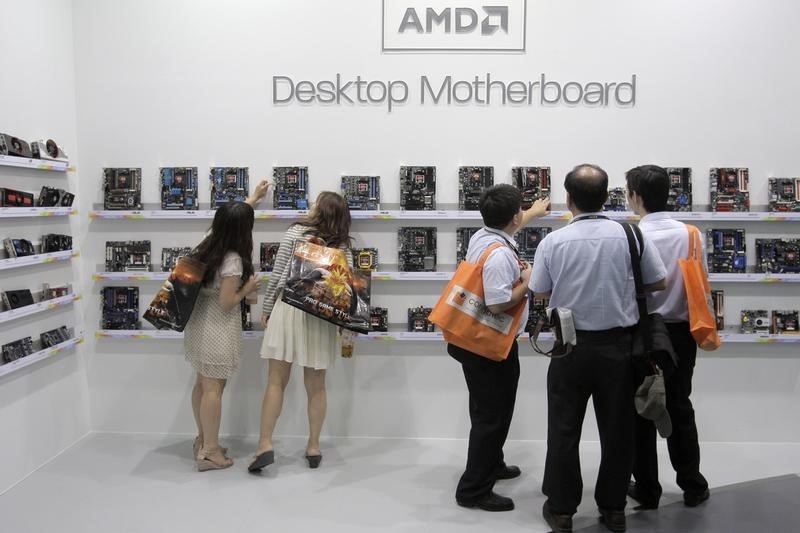Street Calls of the Week
Investing.com -- AMD (NASDAQ:AMD)’s Versal AI Edge XQRVE2302, a radiation-tolerant device, has been qualified for spaceflight and is now available for order. This device is a part of the space-grade (XQR) Versal adaptive SoC portfolio and has achieved the Class B qualification, a standard derived from the US military specification MIL-PRF-38535. With the completion of the qualification and the production data sheet being published, customers can now place orders. The devices are expected to start shipping in the Fall.
The Versal AI Edge XQRVE2302 devices bring accelerated AI inferencing to space. These devices are integrated with enhanced AMD AI Engines (AIE) optimized for machine learning applications. The AIE-ML, as they are known, offer double the INT8 and 16 times the BFLOAT16 performance with reduced latency compared to first-generation AI Engines. The local memory has also been doubled through new memory tiles, providing high bandwidth shared memory access.
The XQRVE2302 devices are compact, measuring 23mm x 23mm, making it the industry’s first adaptive SoC for space applications offered in such a small package. These devices feature the same high-performance processor system as the larger Versal AI Core XQRVC1902 space-grade device, but in less than 30% of the board area. This results in a smaller footprint and a significant reduction in power consumption.
The XQRVE2302 devices also feature a dual-core Arm Cortex-A72 application processor and a dual-core Arm Cortex-R5F real-time processor, along with AIE-ML, DSP blocks, and FPGA programmable logic. These features make it ideal for edge processing in space, such as image detection and classification, autonomous navigation, and sensor data processing. Applications in space include telemetry anomaly detection, wildfire detection, vegetation and crop identification, and cloud detection, which is crucial for earth imaging satellites.
Alpha Data, an FPGA-based acceleration boards leader, has recently announced a radiation-tolerant reference design for the AMD Versal AI Edge XQRVE2302 adaptive SoCs. This reference design, known as the ADM-VB630, is engineered for space-grade design, development, and deployment, enabling fast, cost-effective development and rapid prototyping for space applications.
Andrew McCormick (NYSE:MKC), Technical Director and CTO, Alpha Data, stated that the AMD Versal AI Edge XQRVE2302 is key in the ADM-VB630 delivering a powerful and efficient solution for next-generation satellite applications. He emphasized that this innovation is opening new frontiers for in-orbit intelligence by enabling AI and advanced sensor processing in space.
The AMD Versal XQR Series are designed for complementary roles, with the AMD XQRVC1902 space-grade devices handling heavy-duty signal processing functions, while the smaller XQRVE2302 tackles command and control functions, AI inferencing, and edge compute functions. The Versal XQR Series supports unlimited reprogramming during development and after deployment, including in-flight in the harsh radiation environment of space.
Developers can design for XQR Versal devices using the AMD Vivado tool suite and Vitis AI software platform, along with a variety of developer tools and industry-standard frameworks. AMD will showcase the device at the Alpha Data and Avnet (NASDAQ:AVT) Silica booths at the SpacE FPGA Users Workshop (SEFUW). AMD space architect Ken O’Neill will present a keynote on the AMD Versal AI Edge XQRVE2302 on Wednesday, March 26th at 9:10am CET.
This article was generated with the support of AI and reviewed by an editor. For more information see our T&C.
